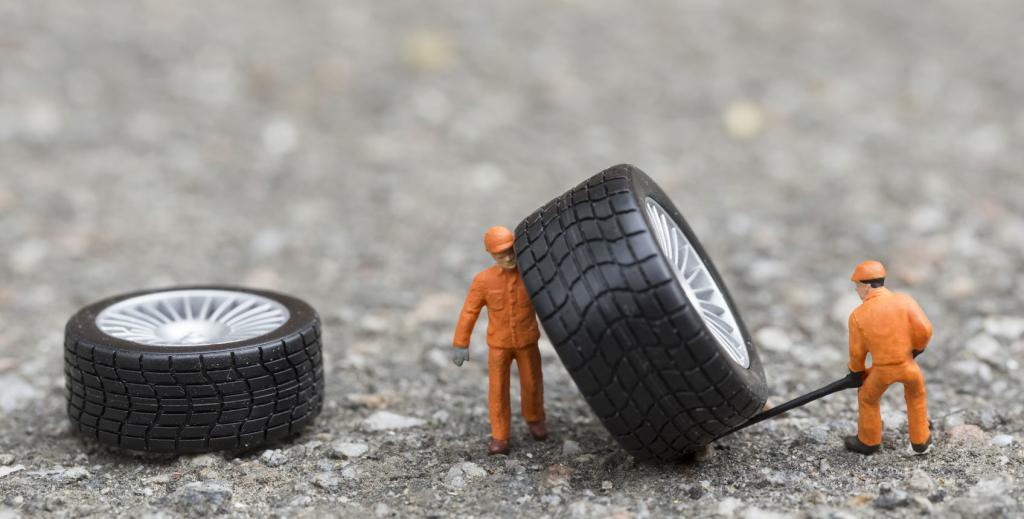You probably know this already, but the collection of empty water bottles, parking slips and chip packets that has been quietly accumulating in your car is probably not going to come in handy in an emergency. If you are going to stockpile stuff in your car, consider stocking up on items that can be useful in a variety of emergency situations.
Here’s our guide to the things every person should keep in their car.
Get fairer car insurance. Based on how you drive
1. Spare wheel kit
You need three things here:
- a jack
- a wrench with a socket on one end a pry bar on the other end
- the spare wheel itself (this needs to be re-pressurised every 5,000 km and replaced every 7 years).
Cars with fancy rims may also require a manufacturer wheel lock to remove anti-theft lug nuts on the wheel. If your car has one of these make absolutely sure you never lose it, and consider taping it to your wrench to make it easy to find.
2. Tyre sealant or plugs
It’s not unusual for a pothole or road debris to take out two tyres in one go. In cases like these a tyre sealant or plug kit can sort out small holes in your tyre for long enough to limp to a repair shop.
3. Motor oil
Stock up on a small container or two of motor oil. If possible go for a screw-top bottle rather than a can. If you do choose a can you’ll need a tool that can puncture it (see item 14 on this list).
4. Warning triangle
A warning triangle is designed to alert other drivers to the fact that there is a stationary vehicle in their path. Keep one of these in the boot and if your car breaks down position it about 50 meters down the road from your car, facing oncoming traffic. Cars that see the triangle less than 50 meters from your car may not have enough time to stop before hitting it.
5. First aid kit
Go for essentials when you pack a first aid kit, then add in items that are more focused on comfort, like insect spray, as space allows. Avoid buying off-the-shelf packs unless they include a good selection of the critical items listed below.
- a space blanket
- rubber tourniquet straps
- any daily prescription medication you require, as well as asthma pumps and Epi-Pens where relevant. Individuals who wear contact lenses should have a spare set or spectacles in this kit
- bandages and gauze pads
- adhesive tape and safety pins
- large adhesive sticking plasters
- antiseptic solution or ointment
- cotton swabs
- curved scissors (these are used to cut clothing away from an injury)
- tweezers
- eye drops
- caffeine pills
- motion-sickness pills
- diarrhoea medication
- painkillers
- latex gloves
- a thermometer
- wet wipes
- a plastic bag for disposal of medical waste.
6. Phone charger
Keep a charger for your phone in your car, along with the extension required to connect it to the power outlets available in your vehicle. Consider investing in a solar powered charger.
7. Spare phone
Keep a spare phone in your car, topped up with prepaid airtime. A cheap handset with a removable battery is ideal for this. Charge the phone, remove the battery to prevent loss of charge and store the two together. Check the charge on the phone battery about once a year.
8. Raincoat
The only thing worse than getting stuck and having to change a tyre is getting drenched by a passing rainstorm while you do it.
9. Jacket
Think, old, comfortable and above-all warm.
10. Flashlight
A durable flashlight is a must in a car. Flashlight batteries will self-discharge over time, so ensure you keep a set of spare batteries with the flashlight.
11. A couple of carpet squares
Have an unused rug or piece of old carpet lying around? Cut two 50cm x 50cm squares out and stash them in your boot. These can be used to give your tyres traction if your car ever gets stuck in mud or sand.
12. Seatbelt cutter tool
Buy the type that doubles as a window breaker. If you want to be extra safe buy two, stash one in your glove compartment and clip one onto your sun visor.
13. Jumper cables
A set of jumper cables will get you, or someone else, back on the road when a car requires a jump start. Ensure you know how to use these cables before attempting to jump start a vehicle.
14. Map book
Yes, these still exist, and will get you where you are going when you don’t have a digital navigation device on hand.
15. Basic tool kit
Don’t be tempted by expensive multi-tools, these won’t be up to the job of getting anything done on your car.
Get a basic tool kit, and ensure it contains:
- an adjustable spanner
- pliers
- a knife
- a multi-bit screwdriver.
16. Emergency rations
Keep a small box of high calorie snacks on hand. Peanuts and dried fruit are ideal, and energy bars will also do the trick. Don’t waste time storing dried rations that require cooking, unless you feel like storing a cooking pot in your car. Also include a store of water in your emergency rations. This should be stored in a glass or high quality food-grade plastic container.
17. Small crate
This probably sounds like a lot of stuff to carry around in your car, but you should be able to fit most of the items you won’t keep in your glove compartment or spare wheel well in a small milk crate in your boot.
Get rewarded
Now that you’re prepared for anything the roads have to throw at you, download the app that rewards you for being a safe driver with fairer priced car insurance.


